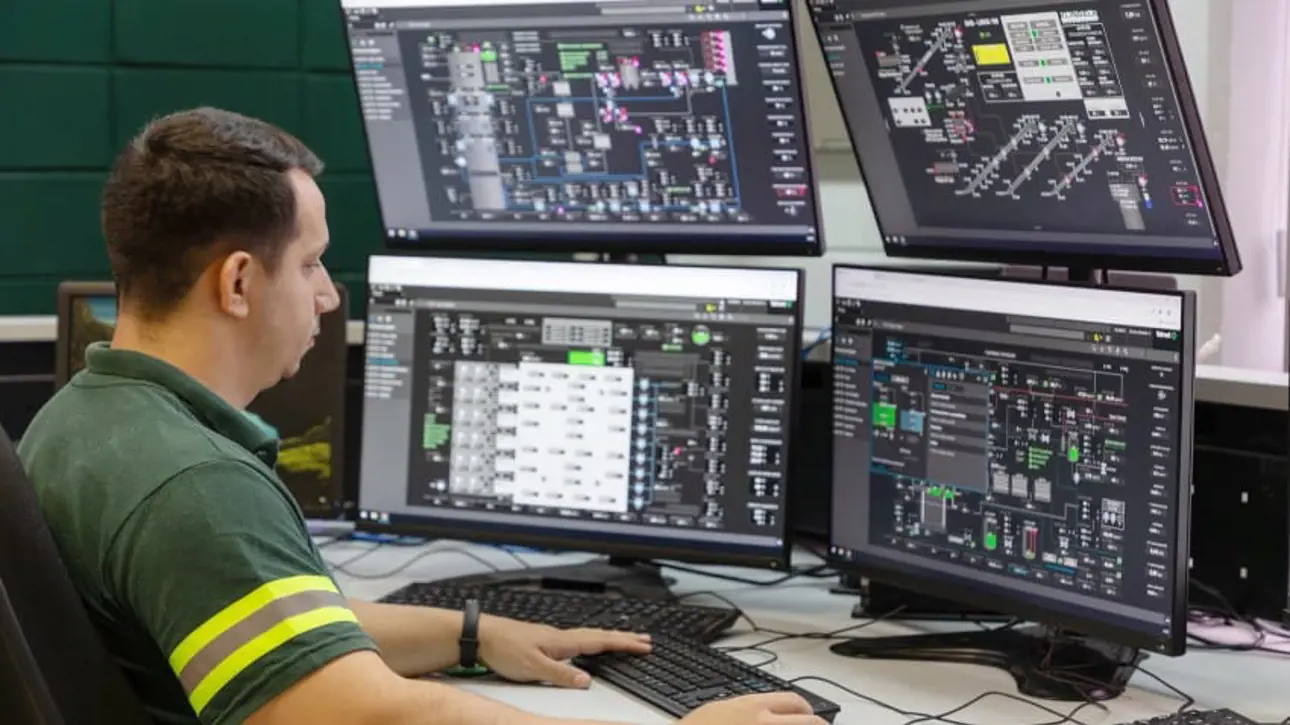Klingele advances in digitalization with Valmet DNA Automation System

Klingele, an international manufacturer of paper and packaging, has taken another important step in its industrial modernization journey with the implementation of the Valmet DNA Distributed Control System (DCS) at its Nova Campina (SP) mill. The project is part of the company’s ambitious investment plan in Brazil, totaling around R$ 1 billion.
“Valmet is a benchmark company in the technology sector, especially in automation. Right at the beginning of the project, Klingele began evaluating how the implementation would be carried out, considering factors such as equipment manufacturing time, quality, and the necessary investment. We concluded that Valmet met all these requirements,” explains Engineering Manager Thiago Sansão.
Project Guepardo: taking the company to the next level
The first phase of Klingele’s investment in Brazil aimed to make the facility self-sufficient in energy. To achieve this, a new fluidized bed boiler for biomass combustion, a turbo generator, and a boiler water treatment system were installed.
“The mill is an old plant that has gone through different investors. When Klingele acquired the plant in 2020, it was decided that an investment would be made encompassing three phases of Project Guepardo: the first was to become energy self-sufficient, the second phase focused on quality, and the third on increasing production,” summarizes Plant General Manager Angelo Teixeira Junior. “The Energy Island project brings us a big step closer to our goal of realizing resource-saving and low-emission production. With the completion of the first phase, we have laid the foundation for continuing to offer our customers products of the highest quality, strengthening the connection to the local community as well as securing a sustainable future for the mill,” explains.

José Scura, Angelo Teixeira Junior and Thiago Sansão, from Klingele.
In the first phase of project, the medium-sized family business is emphasizing its commitment to resource-conserving and largely self-sufficient production as part of a global sustainability strategy.
“We are proud to be part of the transformation of Nova Campina into a modern site with environmentally conscious production,” states Ângelo. “This major project is an inspiring example of international investment that means sustainable growth both for us as a company and for the region.”
Valmet was chosen as a strategic partner to supply the Valmet DNA automation system for controlling the new boiler, BOP (Balance of Plant), and steam turbine, replacing the turbine vendor’s standard controls.

“The Valmet DNA system allows us to improve process control and increase production efficiency,” says José Scura Dirlei, Project Coordinator at Klingele. The choice of Valmet was based on the the cutting-edge technology in other units, such as the digester in Nova Campina, and international references, such as a Klingele unit in Germany and France.
Modern and reliable interface
Valmet’s delivery includes the latest generation Valmet DNAe User Interface that offers an intuitive and personalized user experience for the users. The solution enables remote access to the most relevant information according to the user profile, as well as efficient team collaboration, facilitating quick and assertive decision-making.
“The system allows real-time monitoring, accurate diagnostics, and quick responses to failure events, thus ensuring greater safety and productivity. Additionally, it has a user-friendly interface with features like video replay, which are essential for diagnostics and process improvements,” highlights Scura. The ability to configure screens focused on critical equipment was also noted as an important differentiator for the operations team.
Excellence in partnership and integration
The project represented a significant technical challenge, being the first in Brazil to integrate Valmet systems to control TGM-Weg’s steam turbo generator. The collaboration among the three companies was highlighted as one of the key factors for the successful implementation.
“The alignment between Klingele, Valmet, and Weg was essential. We had a very well-executed interface between the parties. Valmet provided excellent support in terms of workforce quality, bringing speed. So, we can say that all stages of the project were very well executed,” comments Sansão.
Results and next steps
With the new system, the Nova Campina facility now benefits from real-time monitoring, accurate diagnostics, and quick responses to failures, increasing the plant’s reliability, safety, and productivity. The completion of this first phase paves the way for the next steps of the project: quality improvements and increased production capacity.
Klingele’s journey in Brazil is an example of how digitalization and industrial automation can drive efficiency and sustainability in the paper and packaging sector.
About Klingele
The Klingele Paper & Packaging Group is a German family business in its 3rd generation, managed by Dr. Jan Klingele, with a turnover of around 1 billion euros/year.
The company operates with 30 locations in 12 countries, including 3 paper mills with 850.000 tonnes of paper production per year, as well as 12 corrugated board plants and 9 converting plants (including participations). The group employs 3.200 people. Sustainability is of great importance to the Klingele Paper & Packaging Group, which has been investing in renewable energy generation plants for 20 years with the aim of resource-conserving and low-emission production.
